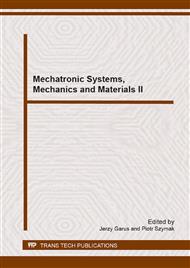p.3
p.9
p.14
p.20
p.26
p.32
p.40
p.50
Analysis of Possibilities of Using Membrane Electrolyser in a Closed-Circuit Power Supply System
Abstract:
The issue of using hydrogen as an energy source of the future raises greater and greater interest and lively discussions. Frequently, leaving aside complexity of the problem, these discussions focus exclusively on fragmentary analyses. This presentation is a description of practical and comprehensive assessment of an actual efficiency of a system using hydrogen for supplying energy in mobile arrangements of a power in the region of a dozen watts. In our discussion, emphasis was placed on the analysis of advantages and disadvantages taking into consideration all these aspects that are necessary for the correct and safe operation of the system.
Info:
Periodical:
Pages:
9-13
DOI:
Citation:
Online since:
October 2013
Authors:
Keywords:
Price:
Сopyright:
© 2014 Trans Tech Publications Ltd. All Rights Reserved
Share:
Citation:


